Winter caravanning is fun and relaxing, and simply great if you take the time to prepare.
In this video, we bring you five top tips to make sure your winter caravanning trips go well so you can enjoy some great-priced getaways and get the most out of your tourer.
1. Staying warm when winter caravanning
When first setting up your caravan in winter, it’s better to use gas as your heating fuel. Gas is more calorific than electricity, and using gas will speed up the warming up process. Once your caravan is warm, you can switch back to electricity to maintain the heat.
Choosing the correct type of gas is also very important. For winter touring you’ll find propane gas works better in colder conditions than butane.
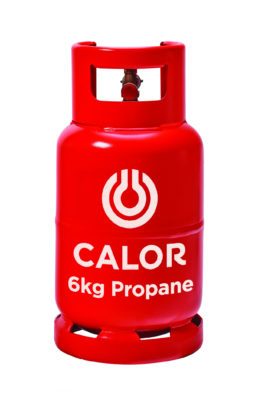
It’s a good idea to take an extra heater with you too. Using a 1 or 2Kw fan heater can quickly heat the caravan if for any reason your main heating isn’t doing the job.
When heating up your caravan for the first time, you may find a build-up of condensation on windows, and inside cupboards. It’s a good idea to keep on top of wiping down any areas that are damp with a clean microfibre cloth.
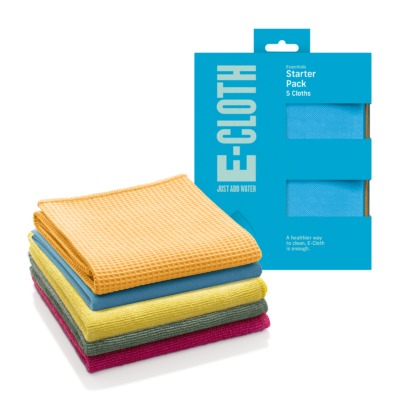
As the caravan warms up and maintains its warmth the condensation will subside, however in the mornings you may find some condensation on the windows. If this is the case, open windows slightly or use a clean cloth to remove it.
Your caravan will have gas vents in the floor, which can be a source of cold drafts. It’s really important that you don’t block or cover these vents.
If you’re using an awning in winter, make sure you cover the wheel arch and use a draft skirt around the caravan to reduce drafts and cold air from circulating inside.
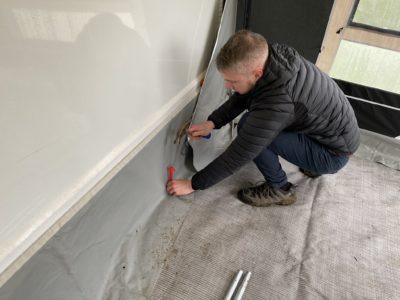
Finally, make sure you pack extra blankets, slippers and maybe some rugs for the floors, to keep toasty warm.
2. Dealing with mud when winter caravanning
Dealing with mud is perhaps the trickiest thing to get right when caravanning in winter, so make sure you pitch your caravan on a hard standing, where possible. If you have to pitch on soft ground, you might want to put some blocks or pieces of carpet under your corner steadies and carry a tow rope in case you get stuck on a soggy pitch.
Use either a porch awning or a canopy to give yourself an outside space to take off shoes and wet clothes, or wipe down the dog.
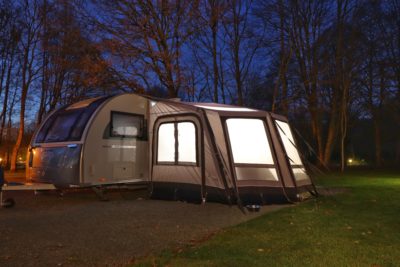
If you decide to use a carpet in the awning, lay down a tarp sheet before you set your breathable carpet down. If you don’t use a tarp the carpet will probably suck up any excess moisture and mud from the ground below.
If possible, also take a large box to keep shoes and wellies in, or a shoe organiser to keep them off the floor.
If you like a good winter walk, a Mud Mate to clean wellies, boots or trainers might be a worthwhile investment.
And whilst we’re on the subject of cleaning, make sure you have extra towels and suitable cleaning equipment for cleaning muddy paws from any furry friend. And extra-large microfibre cloths also work well in drying down damp fur.

3. Planning for cold and stormy weather
When winter caravanning in the UK it’s very possible you’ll be faced with different kinds of weather in just one trip.
Frost or freezing weather is common, so it’s a good idea to wrap your water barrel or Aquaroll in an old jacket or coat and insulate or lag pipes. Using an old coat works well as you can put the pump in one sleeve. Keeping your Aquaroll full will help to prevent the water from freezing. Also, consider raising it off the floor to allow air to flow around the container and prevent ground frost from freezing the bottom of the container.
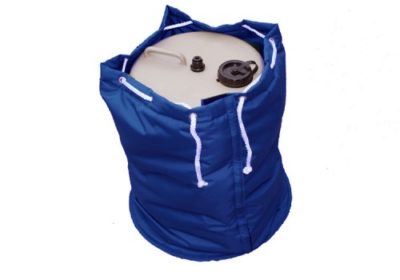
Make sure you have a backup container of water inside the caravan – in case your main water source freezes, so can stay hydrated.
Use warm water down sinkholes of the drains if they become frozen and keep any wastewater container as empty as possible.
Make sure you have plenty of gas and a good charge of the leisure battery, just in case the electricity is cut. Most systems will work from gas and 12volts including the heating, the fridge and the hot water. Also have a supply of tinned and packet food, just in case you’re unable to get to the shops.
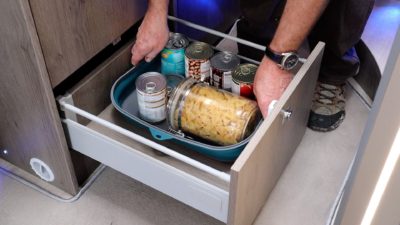
Stormy, windy weather is common in winter, so always use storm straps if you have an awning up, or be prepared to take the awning down quickly if windy weather is forecast, to reduce any possible damage.
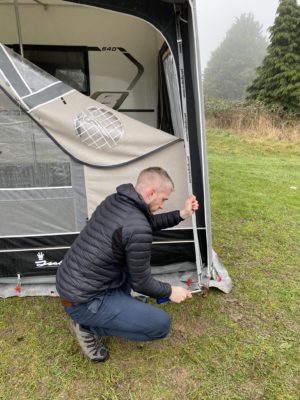
4. Winter caravanning comforts
To maximise your overall comfort whilst caravanning in winter, take extra blankets, woolly jumpers, socks, hats and even a hot water bottle. Make sure you also have plenty of all-weather clothing and lots of spares just in case.
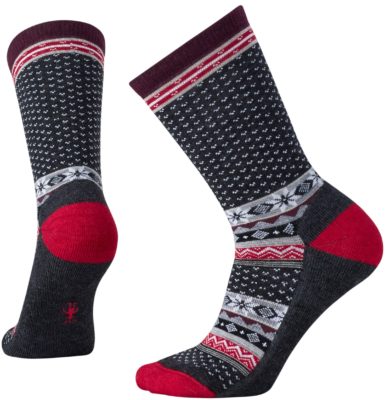
It’s also a good idea to take a couple of good torches too, along with an extra brolly.

For days when you might be stuck indoors have some reading material, DVDs, games, hot drinks and perhaps a slow cooker for tummy-warming stews or casseroles.
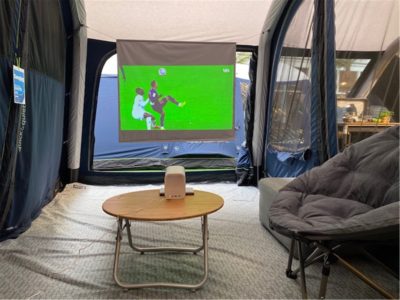
5. Be prepared and stay alert
The overwhelming consideration when winter touring is to be prepared. It’s worth having your caravan serviced before winter touring, so any issues can be spotted before they develop into bigger problems.
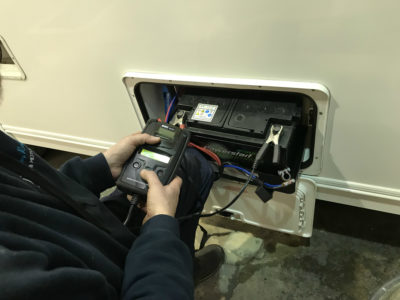
Check the weather conditions before you set off and be prepared to either extend or cut short your trip if bad weather hits. Conditions such as gusty wind, ice, snow, heavy rain, or even fog, should be taken seriously, so keep an eye on weather reports in the area you’re visiting and at home – signing up for UK weather and traffic alerts.

Invest in a winter driving and emergency kit. There are many available, but these should include things like a hazard warning triangle, a shovel, jump leads, a tow rope, hi vis jacket, a first aid kit and a torch. Other things you should carry in the car include an ice scraper, bottle of water, some snacks and a mobile phone charger.
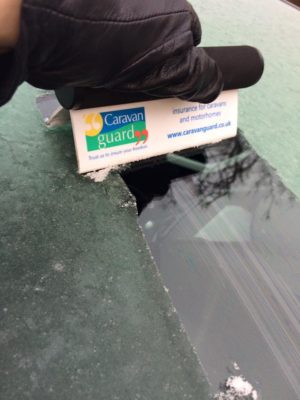
Before setting off on your winter caravanning travels, make sure your tow vehicle has coolant, and a full bottle of screen wash too, just in case it is raining or the gritters have laid out some salt.
In terms of mud and road dirt, a towing cover will help to keep the front of the caravan clean.
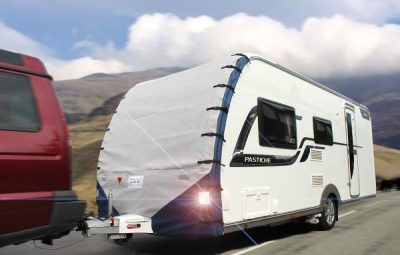
Finally, don’t forget your wellies or winter boots and to make sure you have extensive caravan insurance cover as well as breakdown cover for your tow vehicle, should the worst happen!
And don’t forget before you leave your campsite, to make sure you drain down your caravan. If you like a gadget, you can use Floe to blow water out of the system. Towing your caravan home will help to remove any excess water that might be left in the pipes.
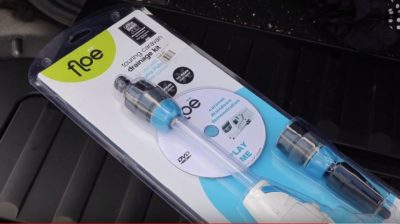
Over to you…
If you’ve got any winter caravanning tips to share then please comment in the box below. We’d also love to hear of your touring adventures in the colder months.
Happy winter caravanning!


as a newbie to caravanning tips like yours are brilliant thanks
Thanks for the feedback Terry. Happy caravanning!
Liz
Its worth closing all blinds and roof blinds as soon as it starts to go dark ,closing the curtains as well as the blinds helps to keep the van warm and toasty. Having battery pir lights are great for moving arount the van in the dark. Join a club that rallies around village halls and have a brilliant social life and rally off grid throughout the year.
Thanks for sharing Elaine
A really useful and clearly presented guide – thank you.
Avery clear and concise guide to winter breaks in the caravan. 5 star rating
Thanks for the great feedback John
Thanks for this – very reassuring to have a comprehensive checklist from you!